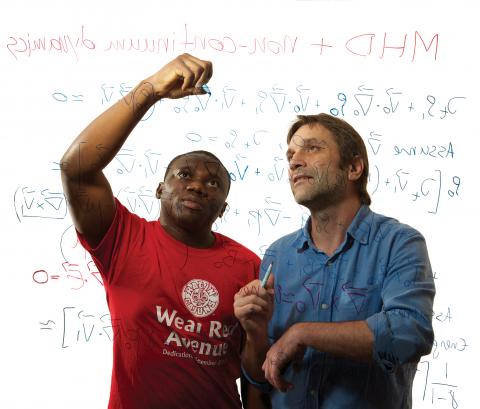How to Maintain a Good Relationship with Your Advisor
Developing a positive working relationship with your advisor in graduate school is well worth your time.
Your thesis or dissertation advisor is key to your progress towards your degree, and can also affect the opportunities available to you post-graduation.
Take responsibility for strengthening this relationship from the outset. Remember that in addition to advising graduate students, faculty have numerous teaching, research, and service responsibilities. You can’t control your advisor’s workload, but you can learn how to use your time with your advisor effectively.
Consider these important tips for getting what you need from your advisor, so you can keep moving towards your degree.
Communication is key.
Openly communicate with your advisor regularly, and don’t be afraid to be proactive. Provide them with consistent updates. Let them know what progress you made the week before and what you plan to work on this week. Share any roadblocks keeping you from making progress.
Regularly updating your advisor will keep you on track, and help you develop realistic goals for your progress. Keep the communication professional and concise.
If you need to remind them of something pending or unresolved, by all means do so. Just remember to make allowances for your advisor’s schedule and workload.
Do your part.
Grad school isn’t always easy sailing--you can expect to experience your share of setbacks and frustrations. It’s important, though, to figure out the root cause of any issues holding you up. Make sure you’re asking the right questions and figuring out what you need.
Listen to your advisor’s feedback carefully and fully consider their thoughts. Try out their suggestions —even if you don’t agree with them. Then, discuss the results together.
There’s only so much help your advisor can provide if you’re at a standstill. Stay organized and break your work down into manageable pieces so you can keep moving forward.
Look at it from their perspective.
Your advisor has years of experience working in their respective field, and can advocate for your success.
Use your time in graduate school to demonstrate your capability and commitment to your field.
A strong relationship with your advisor can open up job prospects or post-graduation opportunities. And they can be one of your greatest assets in excelling in your field even after you’re well into your career.
Grad school advisors have a lot on their plates, but if you establish reasonable expectations and formulate a game plan for your career as a grad student, they can be your greatest asset through grad school and beyond.
